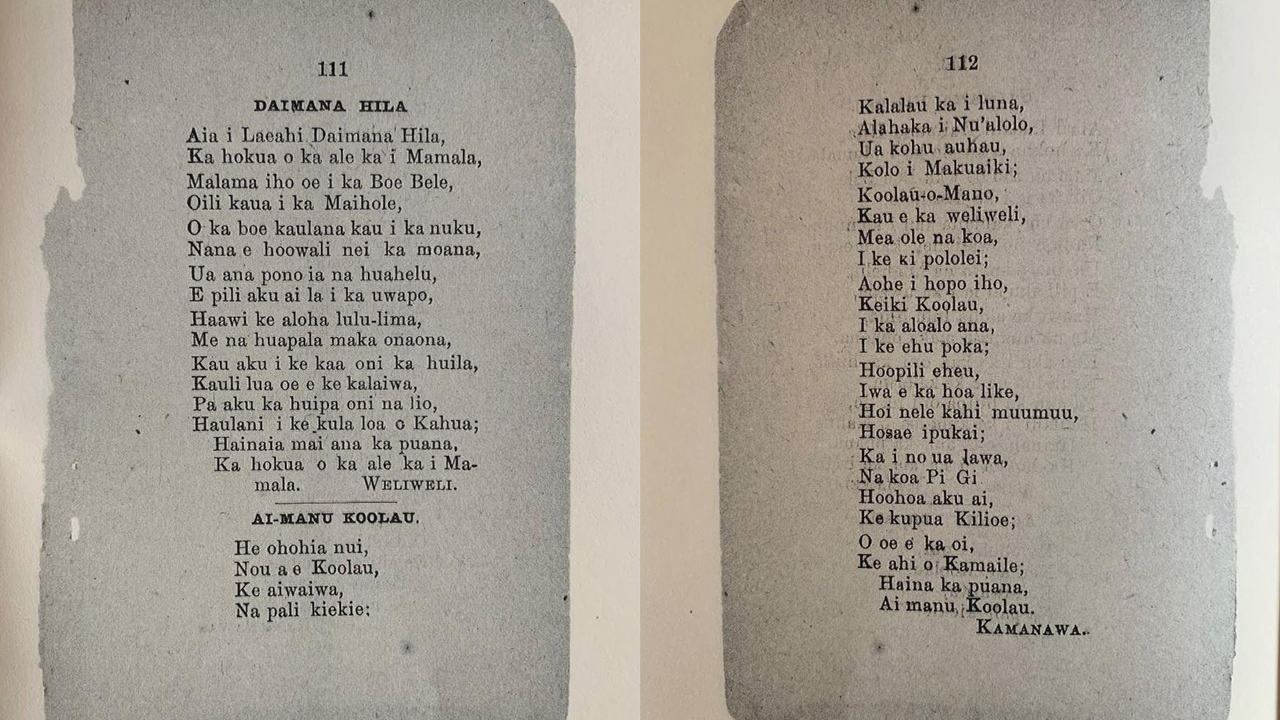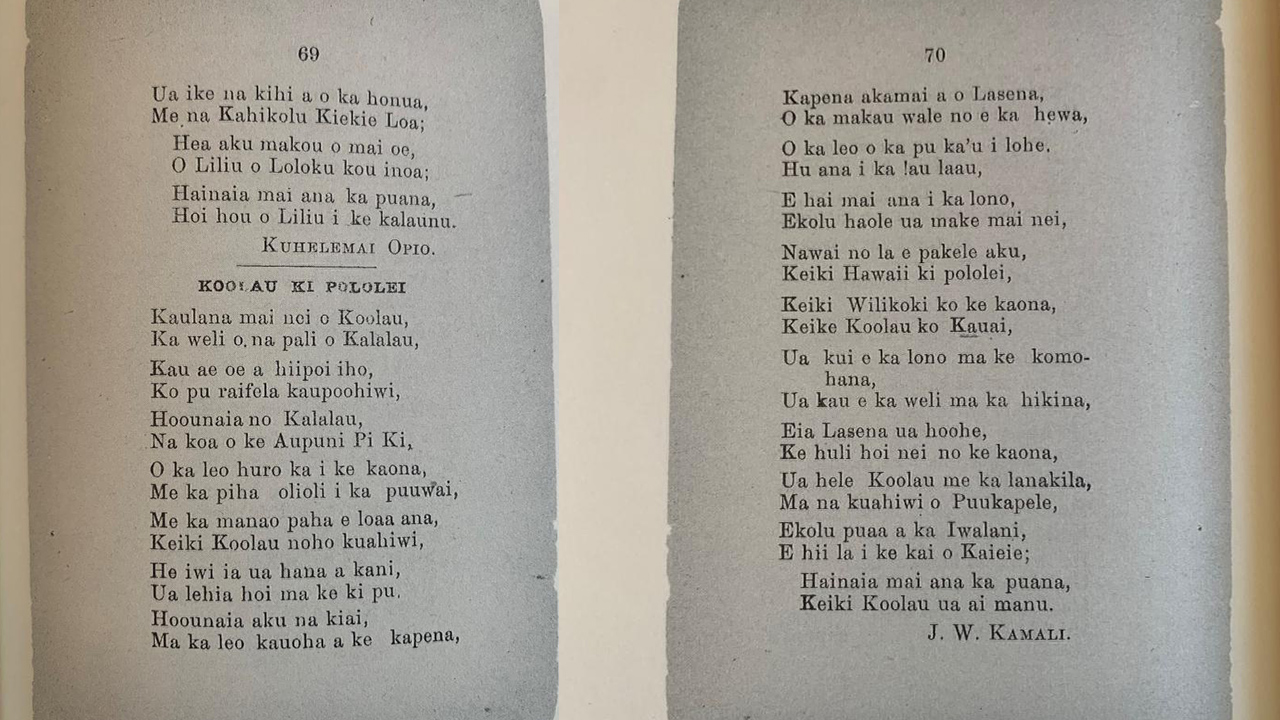Digital Collections
Celebrating the breadth and depth of Hawaiian knowledge. Amplifying Pacific voices of resiliency and hope. Recording the wisdom of past and present to help shape our future.
Helen G. Chapin, Courtesy of the Hawaiian Historical Society
Ko‘olau, a cowboy, trainer of horses, and expert marksman, was born in Kekaha, Kaua‘i in 1862. Ko‘olau and Pi‘ilani, who were childhood sweethearts, married. Together they had a son, Kaleimanu. Then Ko‘olau contracted leprosy -- the dread disease for which there was no cure.
In 1893, a Provisional Government army of thirty-five men traveled to Kaua‘i to capture lepers who resisted being sent to the hated Moloka‘i settlement -- Hawaiians called it "the grave of living death." They captured twenty-seven but Ko‘olau escaped. The authorities, who earlier had told Ko‘olau that his wife could accompany him into exile on Moloka‘i as a kōkua, a helper, then told him she couldn’t. Ko‘olau refused to be parted from Pi‘ilani and vowed he would never be taken alive.
The little family -- husband, wife, child -- took refuge in the remote and rugged Kalalau Valley. Resisting the men sent to capture him, Ko‘olau shot and killed Deputy Sheriff Louis Stolz and two soldiers. The "P.G" army gave up the search. The family hid out for four years, living off the land and assistance from the few Hawaiian families in the region. Kaleimanu contracted leprosy and died, and Ko‘olau and Pi‘ilani buried him. Then Ko‘olau died.
Now alone, Pi‘ilani buried her husband. She emerged from the valley in 1897, sure that the government would punish or even jail her. But they didn’t. Pi‘ilani composed a long poem in Hawaiian of this event. Others tried to tell the story, but hers is the only "True Account." A translation by Francis N. Frazier of Kaua‘i was published in the 1987 Hawaiian Journal of History. At the end of the poem, Pi‘ilani wrote of Ko‘olau and Kaleimanu, "They sleep in the bosom of Kalalau but will live again in living memories."
Journalist Kahikina Sheldon recorded Pi‘ilani’s story and published it, in Hawaiian, in 1906. The lament referred to above serves, in fact, as an introduction to the detailed prose account that Pi‘ilani shared with Sheldon. Their 1906 puke is long out of print, but readers interested in the complete story are directed to the Kaua‘i Historical Society's recent republication of that work: The True Story of Kaluaikoolau as Told by his Wife, Piilani: Translated from the Hawaiian Language by Frances N. Frazier.

